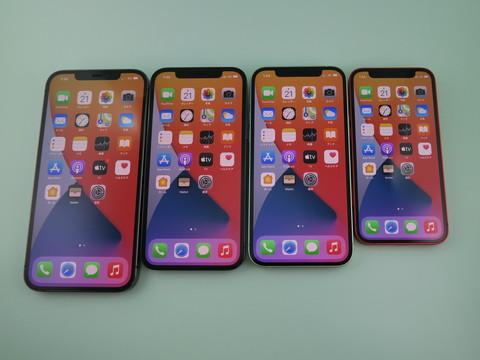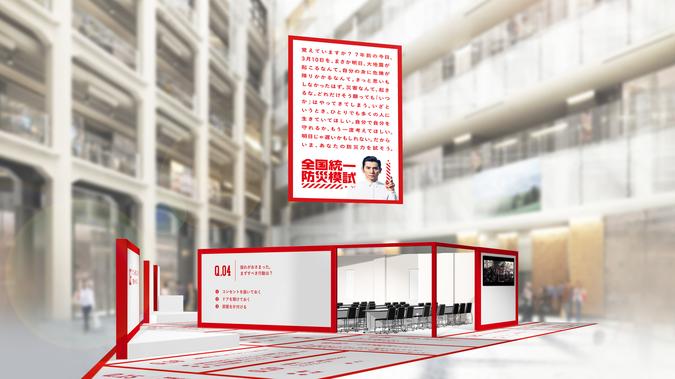Japan should foster super orthodox ICT human resources.
This article was posted on Junichi Niino's blog "Publickey." To that end, we will work on the spread of bogus networks that allow free trial and error (part 2). JaSST'22 Tokyo" (published on March 17, 2022) was partially edited and reprinted by the ITmedia NEWS editorial department.
For two days on March 10th and 11th, 2022, the "Software Testing Symposium JaSST'22 Tokyo" was held as an online event aiming to improve and popularize the testing technology capabilities of the software industry.
At the end of the event, Mr. Daiyuu Nobori gave a lecture titled "Establishment of production methods for high-quality Japanese cyber technology that can spread worldwide" as an invited lecture.
In this article, I will introduce the contents of the lecture as a digest. The article is divided into three parts: the first part, the second part, and the second part. The article you are reading now is part two.
Today we are going to talk about the concepts of "orthodox" and "ultra-orthodox".
Orthodox uses a human-made cloud. I think I can develop this enough.
And the need to increase the number of ultra-orthodox people who create cloud technology, security and Internet technology is clearly a problem for the entire country.
As you can see on this sign, there are many open source software such as Google, Amazon, and Microsoft. I want Japanese people to be able to create something that surpasses this kind of thing. Except for Ruby, there aren't many that were created by Japanese.
Speaking of boats, routers support communication between countries, which are also Cisco in the US, Juniper in the US, and Huawei in China. I want Japanese people to be able to create something that surpasses this kind of thing. I used to make them, but now there are no places to make them.
So why is the US doing so well?
The first is that they are sneaking around doing some kind of outrageous prank.
The second is that at the same time, I am studying various interesting fields furiously.
Let's talk about the first.
Microsoft did something like a phony OS called "Xenix" before MS-DOS.
So does Apple. He tried to sell a machine that hacked AT&T's telephones, but it didn't sell well, so instead he used the knowledge he had learned to build a computer.
Among large companies, AT&T, which denied the outrageous packet communication just now, invented UNIX, which is the basis of the Internet, in 1969, four years later.
The reason for this is that Mr. Thompson and some other employees who had been playing a game called Space Travel on a computer without doing any work were about to remove the computer from the company. So I'm trying to port the game to another computer.
Because I didn't want to go through the trouble of porting, I wanted to create a portable OS and programming language, and that's how UNIX and C language came about.
This is important.
Google does the same. I was making servers lined up in a corner of the university.
When I think about it this way, I think there are orthodox and ultra-orthodox schools in the computer field.
If you look at history in Japan, there are orthodox groups like peaceful court nobles, and samurai and the shogunate are doing various things with their originality and ingenuity to actually change history. It is the ultra-Orthodox who try to make strange weapons and guns.
Both are in a coexistence relationship, perhaps in order to maintain the organization for a long time, the orthodox is necessary, and if it can not be maintained and has to invent something new, it seems that the ultra-orthodox is necessary. increase.
If you look at the computer, the left side is a serious computer. When you enter a large company or a government office for computer work, you are first asked to do the left thing, and you will do this for the rest of your life.
However, it is the ultra-Orthodox who are overwhelmingly short of talent. And the ultra-orthodox is not born unless you do a phony method.
There are still many places in Japan where this method has survived.
The top left photo is the WIDE project in Japan, the true heart of the internet. Really authentic. A photo of the sanctuary.
On the bottom right is the center of the FLET'S Hikari development department of the FLET'S division, located somewhere in NTT East Japan.
In a mess, this is also a sacred place. This place is real.
If you're shown a clean data center during a company visit, you're being guided to a fake location. Actually, technology development can only be done in such a place.
If this real technological development is 3 ultra-orthodox, orthodox is the power to pull towards zero risk, 1
The object that 1 pulls is the chaos of 2. The world is headed toward bankruptcy, so I try to pull it out so that it doesn't fall into 2 and doesn't collapse.
The problem is that without these 3, it will not progress more than other organizations, and it will be relatively worthless and bankrupt.
The most important thing is that even just 1 will break it. Therefore, 3 must be pulled upward with exquisite force.
This is the role of the ultra-orthodox.
If this 3 becomes too strong and 1 disappears, the organization will become very unstable, but Japanese companies do not need to worry about that.
3 needs to be revived.
Another key is that it's not enough to just do phony things. Actually, this is exactly the topic of today's meeting.
You need to design and implement a very high quality, highly abstracted program structure.
Japanese hardware is very high quality, but the software is terrible.
However, looking at things like Google, the hardware is bogus and the software is amazing.
What's the difference? This is a diagram showing the means of production.
1 is an example of producing an industrial product, where raw materials are put into a furnace, complex reactions occur, and there are products.
The second is ICT, and the equivalent of the furnace is the brain.
The raw materials that are put into this furnace are important, but the orthodox people in Japan say that they are orthodox even if they are not in Japan, and they do their own work. However, I don't do it much because it doesn't matter to other things, and it doesn't matter as a salaryman.
Then, what is the secret of ultra-orthodox people who make a lot of good things?
This is very important. For example, in terms of concepts in computers, multithreaded processes, virtual memory, communication stacks, security mechanisms, file systems, cloud VMs, containers, etc. , are all abstracted virtual handlings.
A good OS is good at abstraction.
The idea of the abstraction, virtual memory, is a hint of the academic domain. I make good reference to the fields of philosophy, law, and social systems.
For example, user mode, kernel mode, privileges, process management, private memory area, and so on. These are exactly what I was able to do if I came up with the political economy system of the country and the relationship between the state and the citizens as they were in the computer.
Also, orthodox want to take it easy, so they turn a blind eye to the problem and play a weird game of how many years they can live with as little eye as possible.
On the other hand, the ultra-orthodox are willing to go into the problem and use their brains to solve the essence. It is the ultra-Orthodox who suffer the most.
But in the long run, it's the ultra-Orthodox that makes it easier. The reason is that if you invest in the first, you can create a system that will work for many years later.
If you want to be comfortable now, it is better to choose the orthodox school, and if you want to be comfortable in the long term, it is better to choose the ultra-orthodox school. These are the two branching points that human resources should choose.
You have to think about difficult things to aim for that ultra-orthodox.
Actually, I think there are about 5% of people who want to do ultra-orthodox school.
Since ultra-orthodox human resources are buried in Japanese companies, what we have to do in the future is to make sure that people who are buried are in the physical environment. From now on, it will be important in Japan to temporarily separate the system from the orthodox and create a network in each organization that can be freely used.
So it is important that there is a qualitative leap from orthodox to ultra-orthodox. It seems that this is definitely possible by the method described from now on.
If we briefly explain how we created an ultra-orthodox environment like this fake VPN, we do it by hand. I don't do outsourcing or spending money. We make our own for several hundred thousand yen.
A long time ago, I received 3 million yen from IPA's unexplored project budget.
With a budget of 3 million, we were able to create something good, and when "SoftEther" was completed, the Ministry of Economy, Trade and Industry paid for it.
However, if you can do this, it seems like an order to stop distributing it.
I received complaints from various local governments that the VPN function was too powerful and penetrated the firewall of the local government.
That's why they completely separated the local government network and the Internet so that they wouldn't be able to use SoftEther. All local governments are like that, and everyone is having a hard time because they can't do the Internet.
I stopped distributing it anyway.
Then I was told that I would be commended immediately, and I received a certificate of commendation. Here is a photo of the certificate.
In most cases, we don't have enough money to buy computers with the budget we just mentioned, so we pick them up at garbage pick-up competitions like this.
When I was playing with it, on page 57, I was told that I helped out with a strange country project.
On page 58, after a while, I was impressed when I went to see Murai Lab at SFC (Keio University Shonan Fujisawa Campus) in the middle of the night.
I researched and bought a similar one, and used it at university.
Then the IT minister came by chance and asked me to make the room bigger.
In other words, I'm gradually growing it by hand, so even if such a great person comes, I'll be told that it's okay.
That's why it's important to start small.
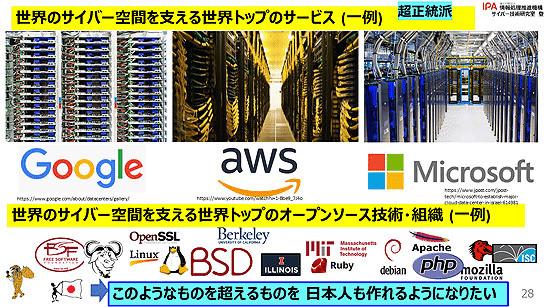
And having access to physical network equipment is very important. Here is an example of the environment at the University of Tsukuba.
It's quite special here, but I think that similar things can be done in a normal-sized organization.
The University of Tsukuba is very large, as you can see in the picture, and has the same size as the Principality of Monaco, but I had a hamster here.
Thereupon, a notice was posted in the university office that it was forbidden to keep hamsters.
When I was doing live streaming of hamster relay with this IP address, there was no other live streaming around 2003. There is nothing on YouTube. I only have hamsters.
So everyone looked at the hamster and complained that the university's firewall was going down because of its lack of performance.
Since the firewall is inadequate and there is nothing we can do about it, we have put a LAN cable on the roof to overcome it. I was told not to use it because it was dangerous and to switch to optical fiber.
So I bought an optical fiber, and I was experimenting by pulling this optical fiber and connecting it outside the firewall of the university.
While conducting various experiments with SoftEther, there are very few people who abuse it, so the university receives a letter of appreciation from the police for an investigation.
When I do that, it usually goes to the person in the general affairs department, and something strange has come again, so please stop researching.
It's outrageous to be forced to stop research, so this outrageous general affairs department is next to the president's office, but there are rumors that you can enter through a mysterious underground passage, and this underground passage is the source of student disputes. There are rumors that you can run away when it happens.
From there, I jumped into the general affairs department, and some students entered this underpass, thinking that if I said yes, they would stop asking me to stop researching.
When we explored, there was a really very large underpass. There were 14km of underpasses in total.
There are a lot of optical fiber cables in the underpass, and when I tried to pass the optical fiber together, there was already an optical fiber from NTT East.
This is interesting, and now if you follow NTT East's optical fiber, you'll end up in the southernmost cave, and the hole in this cave is too narrow for people to pass through.
This is the end of the university, and beyond this there is something like a city pipe, and I want to see the future.
I don't care about the general affairs department just now, so I'm going to do something about it.
I found out that I was connected to NTT's telephone office, so when I told the old man at NTT's phone, he said, "Go to Tokyo."
I went to NTT's headquarters in Hatsudai, Tokyo, and they said yes, so I could rent optical fiber and space in the telephone office to build various experimental telecom facilities of my own. Please tell me how.
I started doing amateur construction using so-called dark fiber.
This is very interesting, so I put servers and routers in Tokyo, Ginza, Shibuya, Marunouchi, and Ikebukuro to create a ring network.
And they often go into the telephone office to help fix phonies.
If you have a FLET'S at home, you will have optical fiber in your house, but if you have a FLET'S at the telephone office.
When FLET'S is at home, optical fiber is installed in the house, but in the end, I came up with a great technique of "pulling FLET'S to the telephone office instead of the house." The reason why the fiber suddenly cuts due to failure is the distance between the telephone office and the house.
When I thought that there was no crazy person in the telephone office who put FLET'S in, I thought it was interesting that there were several others.
When I was doing various things at NTT, I was asked to explain a little because it was outrageous. I also got NTT clothes from a high-ranking person, saying that I would give them NTT clothes so that they would not be found out.
There was a part of FLET'S that was slow in NTT, so PPPoE was bad, but in order to speed it up, we realized dynamic DNS for IPv6 return communication. If you try to do various things for it, you won't do that kind of thing.
There is a place like the Death Star at the head office, and Darth Vader is there, but those people complained and wouldn't let me do it, so I decided to hold a negotiation. I wrote a lot.
Since negotiations are useless, I made a secret stamp praising the telephone office.
A duck praising NTT's FLET'S.
We also made a shooting game to celebrate NTT.
So, this is a very good thing, so I made a dynamic DNS that can be used freely in NTT's real FLET'S network.
I think that about 100,000 computers are currently being used for business within the FLET'S network.
This was very good, so I thought about joining NTT East for a while, and when I joined the company, we hurriedly created a Shin telework system together.
This photo shows the Raspberry Pi at that time.
I put a lot of these Raberry Pis together and built it in 3 weeks using the technology I got from VPN-Gate. It is written in C language.
This is a picture of fun and fun building. It's still like this.
I think that the people who created things like UNIX, Windows, and Google started out with something like this.
It's impossible to make a product without doing this, so I think this is always necessary along the way.
Since this kind of thing is very wonderful, we have received social recognition recently. I don't think I should do it more and more.
Since we have received this kind of evaluation, we believe that this is the right thing to do. Trying to make
The 10,000 or so people who might become ultra-orthodox ICT human resources who are in trouble because they have already acquired them anyway, are 10 people in about 1,000 organizations. I think there are about.
Since it is no longer possible to create a bogus network like ours from scratch in each of those organizations, we decided to open up something that was created under the guise of something like our Shin Telework System so that it can be used anywhere.
If you do that, someone will start to create something using that network or something that goes beyond that network without permission, and in parallel Japan will create something new that is comparable to UNIX and the Internet, and 10,000 If you create as many people at the same time, I think that about 100 of them will be amazing.
I thought maybe 100 of them would be like Google.
Therefore, we collaborated with Keishikaran IPA, NTT East, and other Keshikan Japanese traditional organizations, and decided to do something like this.
Now is your chance.
This 118th page is a drawing that introduces the back side that supports IPA's advanced cyber activities.
In general, IPA's Outrageous WAN isn't located in a single building, it's linked to telephone offices and other places, and uses a lot of surplus dark fiber.
So you're paying a fair cost, but very cheap to build a network. 40GB, 80GB, 100GB, etc. Make a ring using a lot of networks.
It connects to the Internet at multiple points, but surprisingly, it does not use any dedicated carrier lines and is self-made.
There is one exception in western Japan, and the others are all self-made.
The self-made method is self-made with the photo described on page 119.
I don't have enough time to propagate this method to many people, so I'm thinking of writing a basic book or article.
And recently, various people bring something under this network.
High school students, technical college students, university students, working adults, and teachers from other universities have heard rumors that it would be nice to bring them here.
Therefore, we allow people who want to experiment with various networks to improve their information processing technology. Everyone thought that there were no such people who wanted to create a net or something like that.
I feel like there are about 100 people around me.
1000 ultra-orthodox network professionals are enough, so we have to nurture them.
Among them, we have more than 10 connections.In fact, the Internet is also operated by software, and the software that connects providers is called BGP, and it looks like a license number for each provider. One is called AS, but it was not normal for everyone to take it individually.
This usually only provides BGP upstream transit line providers for corporations, and in order to get an AS number, you have to contract with two or more upstream line companies called transit, so it costs a lot of money. It costs 300,000 yen every month, so I can't do it on my own.
So, even though we got it, about 95% of people don't have it, so it's 2022 to somehow release it so that it can be used without spending money. We are planning an activity.
There are many junior high school students who like this kind of thing.
In cooperation with the Board of Education, we believe that it is important for young people to come into contact with a global IP address in Tsukuba City, a purely natural global IP address without NAT or firewalls, from a young age. I made a server storage place in an old school building.
10 junior high school students a year have been working on this server for 6 years, so about 60 people are using it.
Our mission is to make it possible for young people to do what we used to do in our own homes until the 90s.
This is the last time.
This ultra-orthodox network trial and error environment is created by utilizing the resources of these organizations while maintaining the organization of various large companies, government offices, local governments, local governments, and research institutes in Japan. By doing so, I think we can create about 10,000 ultra-orthodox ICT human resources in parallel.
By doing so, Japan already has the wisdom to naturally and legitimately become the world's number one ICT technology country, but I think this is the only thing missing.
And all other industrial areas that have been free trial and error, Japan has already passed 150 years since the Meiji era in 1868, and succeeded in becoming the top in all industrial areas.
However, ICT is not ready yet. If we can create a free environment like this in ICT, I believe that the ability to become the top in the same way will surely be demonstrated in Japan in the future.
This concludes the presentation on the establishment of a production method for high-quality Japanese cyber technology that can be spread around the world.
Continued in Part 2. In the second part, through the question and answer session, Mr. Nobori reveals a kind of philosophical idea about ultra-orthodoxy.
Copyright © ITmedia, Inc. All Rights Reserved.
To read more, you must agree to the terms of use for comments and register for "ITmedia ID" and "ITmedia NEWS Anchor Desk Magazine"

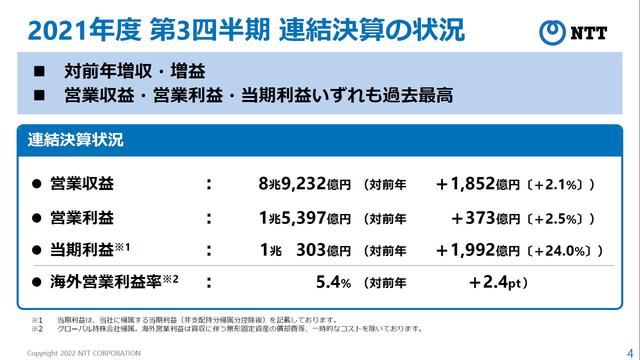



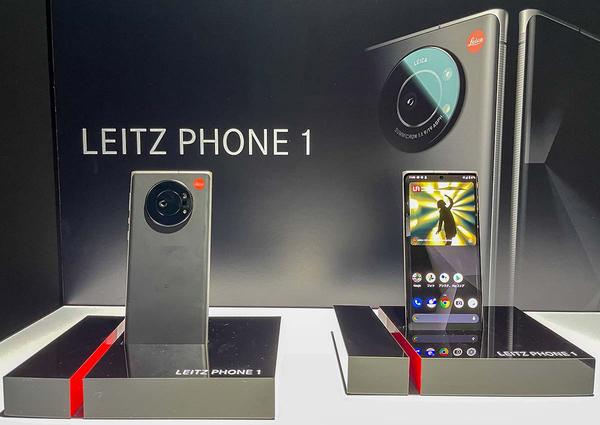
![[July 6 and 7] DX realized by content cloud, advanced platform for business transformation](https://website-google-hk.oss-cn-hongkong.aliyuncs.com/drawing/article_results_9/2022/3/9/6bbafe438d78271513761788166cbf94_0.jpeg)
